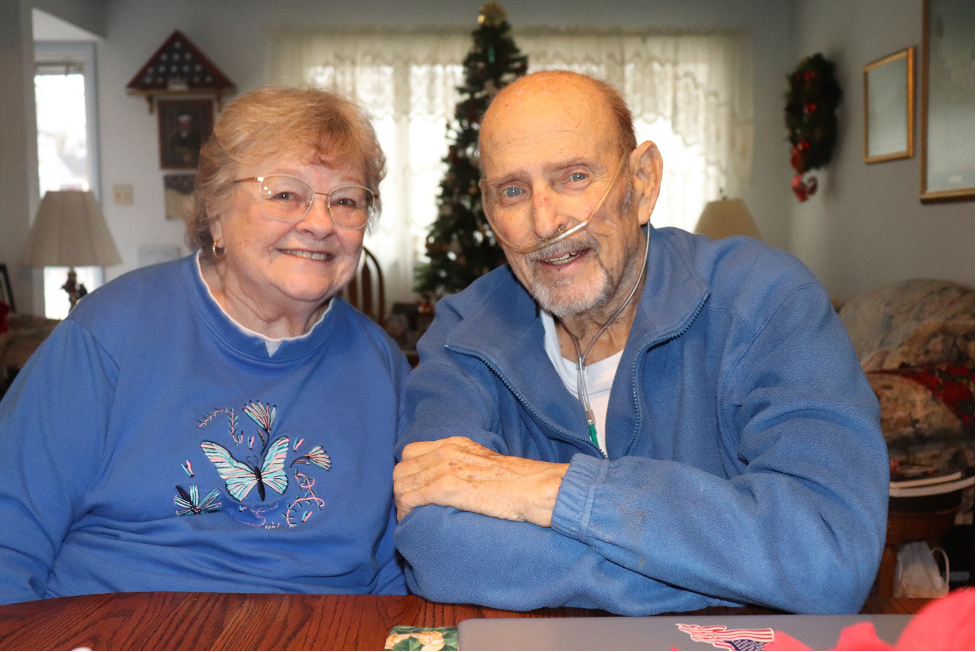
Westside resident Jim Pennington is an expert at living each day as if it’s your last. He’s had 40 years of experience doing just that.
Pennington had his first heart attack 40 years ago, at the age of 42. It was a “widowmaker,” which means certain death for most who experience it. Pennington survived it. And from that moment on, Pennington and his wife Brenda decided that they wouldn’t let anything – including heart disease – stand in the way of living a full life.
“This is an active man,” said his high-school sweetheart and wife of 62 years, Brenda. “He has never let his heart condition stop him.”
At 82, after defying medical science for decades, Pennington’s amazing heart began to fail him for good. He was told he had a couple of weeks to live. His options? He could spend what time he had left in and out of intensive care units and emergency departments or be cared for in a nursing home. Or, he could stay at home and enroll in Hospice of Cincinnati’s Advanced Cardiac Care Program (ACCP). This innovative initiative addresses the unique end-of-life needs of people with advanced cardiac disease.
The Penningtons chose the ACCP, and several months later, he’s still living out his life as comfortably as possible at home, surrounded by his close-knit group of friends and family.
“It’s given Jim the opportunity to stay with us a little longer,” Brenda said. “And it lets him be surrounded by the people that he cares about and care about him. Just knowing that we’re here at home and that we’re not in this alone is so helpful.”
As with any hospice program, ACCP focuses on making the patient comfortable and helping them to have the best possible, most meaningful end-of-life experience. But ACCP takes it up a notch by providing additional services specific to managing heart disease, such as continuing certain heart medications and helping the family closely monitor and manage symptoms.
“The goal of the ACCP is not to improve the overall function of their heart, or cure their underlying issues, since that is no longer feasible,” said Joseph Barone, Certified Nurse Practitioner for Hospice of Cincinnati. “It is to keep their symptoms well managed and give them the best quality of life up to the end.”
Patients enrolled in the ACCP receive the same services that other hospice patients receive, including visits from STNAs (state-tested nursing assistants) for personal care, support from an interdisciplinary care team (like nurses, social workers, chaplains and others) and short-term hospice inpatient stays if needed. But as part of ACCP, they also benefit from:
- Care team members who have received specialized cardiac training
- An elevated level of nursing care and attention from registered nurses and nurse practitioners
- Use of evidence-based practices for managing symptoms, approved by the American Heart Association (AHA)
- Patient and family education on how to access around-the-clock medical resources and how to monitor and manage symptoms (like weight gain and blood pressure)
- Continuing their cardiac medications, provided by hospice. Additional medications may also be prescribed to manage the disease and symptoms.
- Discussions about advance directives and end-of-life wishes
To others seeking compassionate and meaningful end-of-life cardiac care, Pennington highly recommends ACCP. “If you can get involved in this program, you need to,” he said. “It has done wonders for me.”
